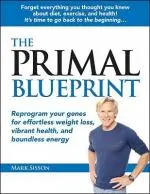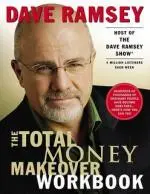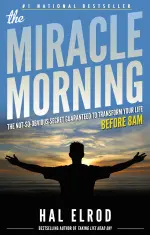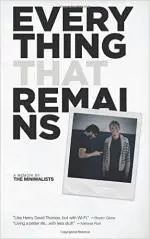Photo by Gregg Segal
I read a lot of non-fiction books. Mostly for self-improvement, ideas and inspiration. Ways to make my life better and to help me grow both personally and professionally. More often than not the books I choose do help, and with each read I take away nuggets of wisdom I can implement to improve my life. But occasionally a book is an absolute game changer. This is what I’m focusing on today. Sometimes it’s not following the book exactly to the letter that changes my life but the fundamental principles I learn. Other times it’s because it provides a shift in thinking or a new lens from which to view the world. Let’s take a close look at four non-fiction books that changed my life and will perhaps change yours, and then a more concise look at a further six that have certainly helped.
![]() 1. ‘The Primal Blueprint' by Mark Sisson
1. ‘The Primal Blueprint' by Mark Sisson
Books 2–4 could be ranked in any order but there was only ever one book for the top spot, and that’s The Primal Blueprint by Mark Sisson. I first read it six years ago while suffering from debilitating arthritis and taking ten prescription drugs daily plus a weekly injection of methotrexate (a drug typically used to treat cancer). My body constantly ached, I was quickly gaining weight and I’d been failed by conventional healthcare. Still I wasn’t giving up, and was searching for a way to self-medicate through diet which was how I stumbled across Mark Sisson’s website Mark’s Daily Apple and subsequently his book The Primal Blueprint.
The Primal Blueprint challenges conventional wisdom’s way of thinking about diet and takes things back to basics. The book boldly claims that following the Primal Blueprint ‘laws’ will lead to effortless weight loss, vibrant health and boundless energy. The real attraction to me were the testimonials from people with autoimmune conditions and arthritis who claimed following The Primal Blueprint had put their health conditions into remission. So I gave it a shot for thirty days. The dietary skinny is this. Do eat meat, fish, vegetables, fruit, eggs, nuts and healthy fats (including olive oil, avocado oil, coconut oil and animal fats). Don’t eat processed food and above all definitely don’t eat cereal, grains, processed food and sugars and legumes. You may have heard of the Paleo ‘diet’ (it’s more of a lifestyle because you can sustain it life-long). Primal is essentially a variant that also allows sensible indulgences of dairy in moderation. Find out more about the specifics of Paleo here.
A month later the arthritis pain was significantly reduced and I was off eight of the ten prescription tablets and two months later, after consultation with my doctor, I was off all prescription medication and for the first time in five-years pain-free. As a happy side-effect I also lost the excess weight arthritis had caused me to put on. You can check out my full story on Mark’s Daily Apple.
Six years later I still subscribe to the principles in The Primal Blueprint and the days when I don’t—whether it’s lack of exercise, overworking or planned dietary deviations—I pay for it. The Primal Blueprint didn’t just work for me, it changed my life more than any book or event has. I don’t think it’s overstating the benefits to say that if it hadn’t been for The Primal Blueprint, I doubt I would have enjoyed the success I have professionally. In healing my body I was able to also achieve clarity of mind and decided to follow my passions and not just the pay cheque. If you want to try it I recommend full compliance for thirty days and I hope it improves your life, too.
![]() 2. ‘The Total Money Makeover’ by Dave Ramsey
2. ‘The Total Money Makeover’ by Dave Ramsey
Success is addictive. After the health transformation I experienced through The Primal Blueprint I was hungry to find other ways I could radically level-up my life. Before reading Dave Ramsey I thought I was okay with money but the truth is I just wasn’t that responsible. Money came and money went. I didn’t get myself into heaps of debt but I wasn’t really saving money either. I didn’t really feel I had enough money to be accountable or to save so I didn’t even try. Big mistake.
Dave Ramsey has a no-nonsense approach to advice but fortunately his advice is gold, so even if his tone doesn’t vibe with you it’s worth persisting with. As a Christian he’ll occasionally link his principles to biblical teachings but it isn’t so overbearing that it detracts from the overall message. The Total Money Makeover is great for clearing debt, for saving money, for investing and for building wealth. I wish there was a more UK-centric book (and will soon hope for a Japan-centric book as I’m once again relocating there) but there are enough general principles that are applicable worldwide.
The big takeaway for me was zero-based budgeting. Allocating all the money that I receive each month so I know exactly where it’s going and how much I have to spend in each category of outgoings (whether food, clothes, bills, special occasions, savings—it’s all accounted for). Learn more about zero-based budgeting here.
This isn’t the most advanced financial book out there—in fact the principals are surprisingly simple—but it sure was the kick up the arse I needed to improve my wealth.
![]() 3. 'The Miracle Morning: The Not-So-Obvious Secret Guaranteed to Transform Your Life—Before 8AM' by Hal Elrod
3. 'The Miracle Morning: The Not-So-Obvious Secret Guaranteed to Transform Your Life—Before 8AM' by Hal Elrod
Despite its title you can learn from The Miracle Morning no matter what time you wake up. The takeaways could perhaps be condensed into an article rather than a book, but I still found The Miracle Morning incredibly useful. The idea here is to get up one-hour early and to pack six elements into your morning: silence/meditation, affirmations, visualisation, exercise, reading and journaling/writing. Instead of spending a long time on each Hal Elrod recommends just ten minutes as a starting point. From there you can tinker with the numbers and see what works for you. I prefer spending less time on affirmations and visualisation but adjusting the other elements so they last longer.
I don’t start every morning with all six elements but I do try and hit at least three. Perhaps more than the prescribed ‘Miracle Morning’, Elrod’s book made me think about morning routines as a whole and how they affect the rest of the day. Get them right and you’re set for the day, but get them wrong and the day may spiral downwards and fast.
![]() 4. 'Everything That Remains' by Joshua Fields Millburn and Ryan Nicodemus
4. 'Everything That Remains' by Joshua Fields Millburn and Ryan Nicodemus
Okay confession time: Everything That Remains wasn’t the first book I read on minimalism, but it is a great introduction. My first experience with minimalism may have been one of the other titles by ‘The Minimalists’ (the collective name for Joshua Fields Millburn and Ryan Nicodemus) or even The Power of Less by Leo Babauta—the truth is I just don’t remember which it was. What I do know is that learning about minimalism via the three aforementioned authors and their respective websites The Minimalists and Zen Habits was yet another pivotal moment in my life.
Essentially minimalism is the idea that every possession you own brings value to your life. Leo Babauta says of his website Zen Habits, “Zen Habits is about finding simplicity and mindfulness in the daily chaos of our lives. It’s about clearing the clutter so we can focus on what’s important, create something amazing, find happiness.” I think this encompasses the principles of minimalism well. I’ve been a fan of the minimum effective dose (MED) for a while now thanks to Tim Ferriss’s championing of the concept. The MED is finding the smallest dose that will produce a desired outcome. This can be applied to all aspects of life whether fitness, health, language learning, financial security, writing goals etc. Perhaps a popular misconception regarding minimalism is that it’s about owning a small amount of possessions. This isn’t necessarily true, but people do seem to omit effective in MED which makes all the difference.
I started living a minimalist lifestyle before relocating to Japan and subsequently Portugal. Back then both my wife and I had a single suitcase of possessions each. Right now we’ve increased our possessions to three suitcases and a carry-on between the two of us (crazy, right?). The point isn’t depravation (though temporary depravation can be a useful exercise in seeing if you really need something) but in questioning what you truly need. Living intentionally and not just going through the motions. Ensuring everything I do, everything I own, every purchase I make, adds value to my life. This goes hand-in-hand with Dave Ramsey’s financial principles as I’m always asking myself “does this purchase give me more or equal pleasure to the monetary and/or time cost?” If no then it’s easy to forego.
I’ll close with a quote from The Minimalists that complements Babauta’s quote and adds further insight into minimalism.
Minimalism is a tool we use to get rid of the excess stuff in our lives to make room for the essentials. Minimalism allows us to focus on what’s important in life—health, relationships, passion, growth, and contribution—so we can find happiness, fulfillment, and freedom.
6 More Books That Helped Me
5. 'The Magic of Thinking Big' by David J. Schwartz
Because you can’t underestimate the power of positive thinking and dreaming big to succeed.
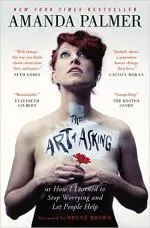
6. 'Convict Conditioning' by Paul Wade
Because this book tells you how to get super fit using just bodyweight exercises. No gym membership required.
7. 'The Art of Asking: How I Learned to Stop Worrying and Let People Help' by Amanda Palmer
Because it’s the perfect anecdote and answer to all those who talk of ‘shameless self-promotion’ as if it’s a bad thing and tell you never to ask for help.
8. 'The 4-Hour Work Week: Escape the 9-5, Live Anywhere and Join the New Rich' by Timothy Ferriss
Because despite his detractors he meticulously tests and questions conventional wisdom and supposed truths and teaches us to as well. Listen to his podcast and read his books.
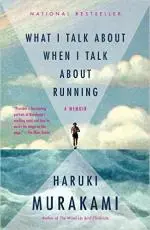
9. 'Daily Rituals: How Artists Work' by Mason Currey
Because I’m obsessed with morning rituals and daily habits and this helped feed my addiction.
10. 'What I Talk About When I Talk About Running' by Haruki Murakami
Because it made me want to get out the house and start running whilst also teaching me how fitness and exercise principles can be applied to creative work. Primal Endurance: Escape Chronic Cardio and Carbohydrate Dependency and Become a Fat Burning Beast! by Mark Sisson is an excellent companion book that shows you how to run whilst staying super healthy.
Now it’s your turn. Which books have changed your life? See you in the comments.
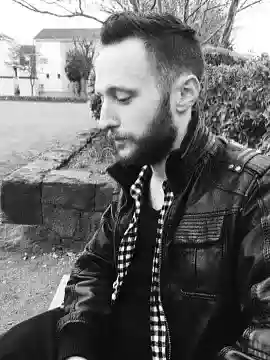
About the author
Michael David Wilson is the founder of the popular UK horror website, podcast, and publisher, This Is Horror. Michael is the author of the novella, The Girl in the Video, and the novel, They’re Watching, co-written with Bob Pastorella. His second novella, House of Bad Memories, lands in 2021 via Grindhouse Press. His work has appeared in various publications including The NoSleep Podcast, Dim Shores, Dark Moon Digest, LitReactor, Hawk & Cleaver’s The Other Stories, and Scream. You can connect with Michael on Twitter @WilsonTheWriter. For more information visit www.michaeldavidwilson.
